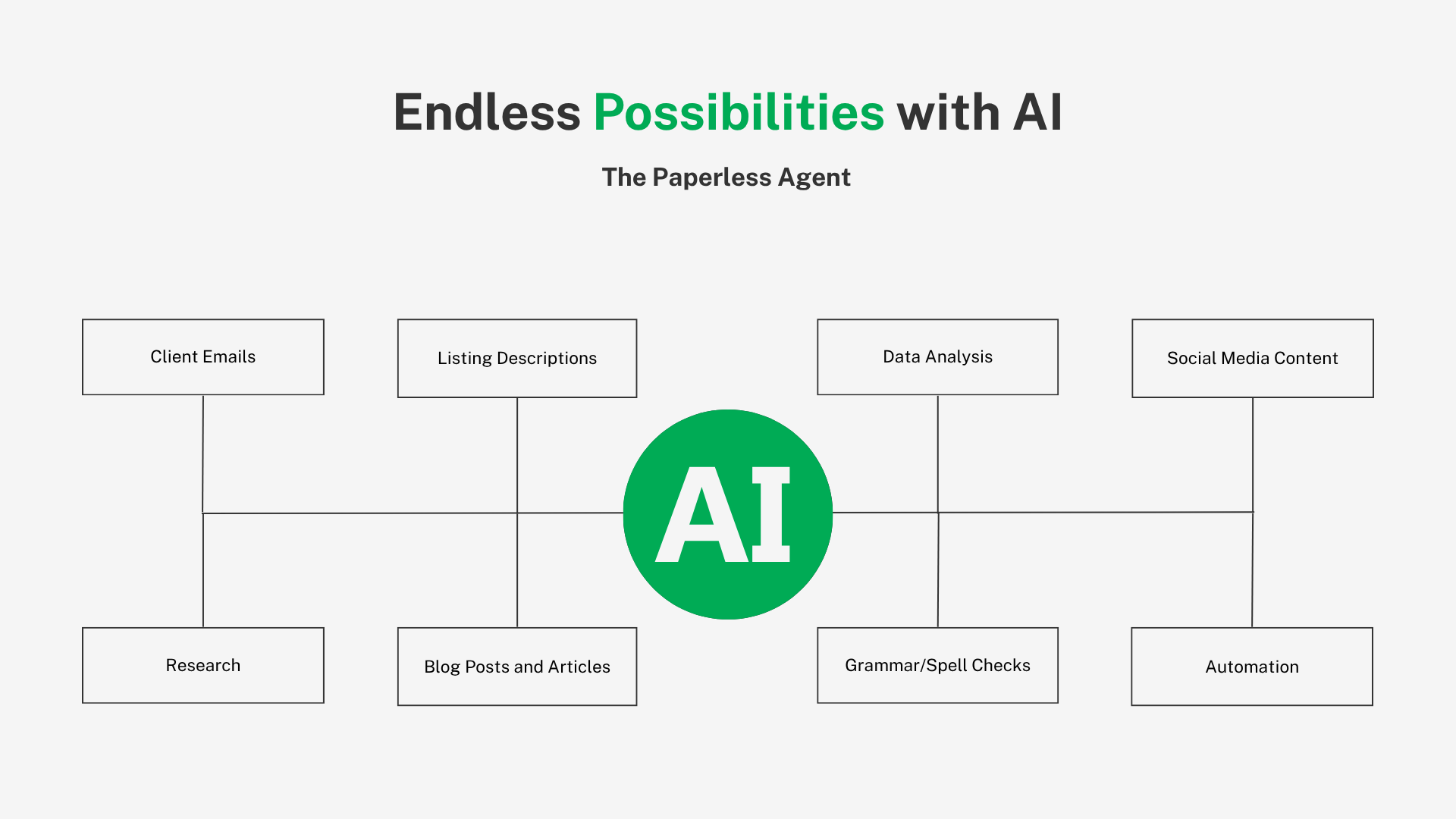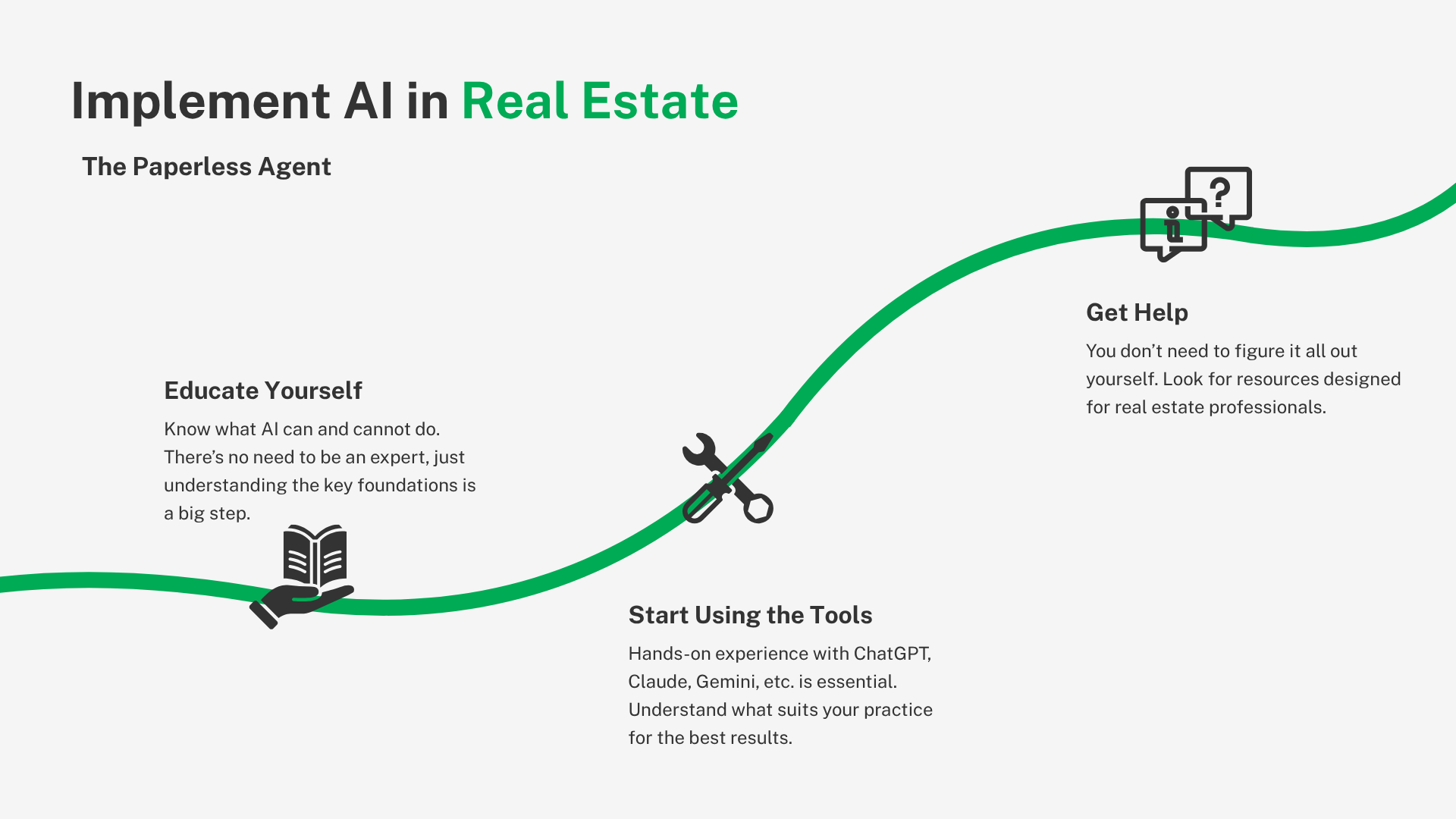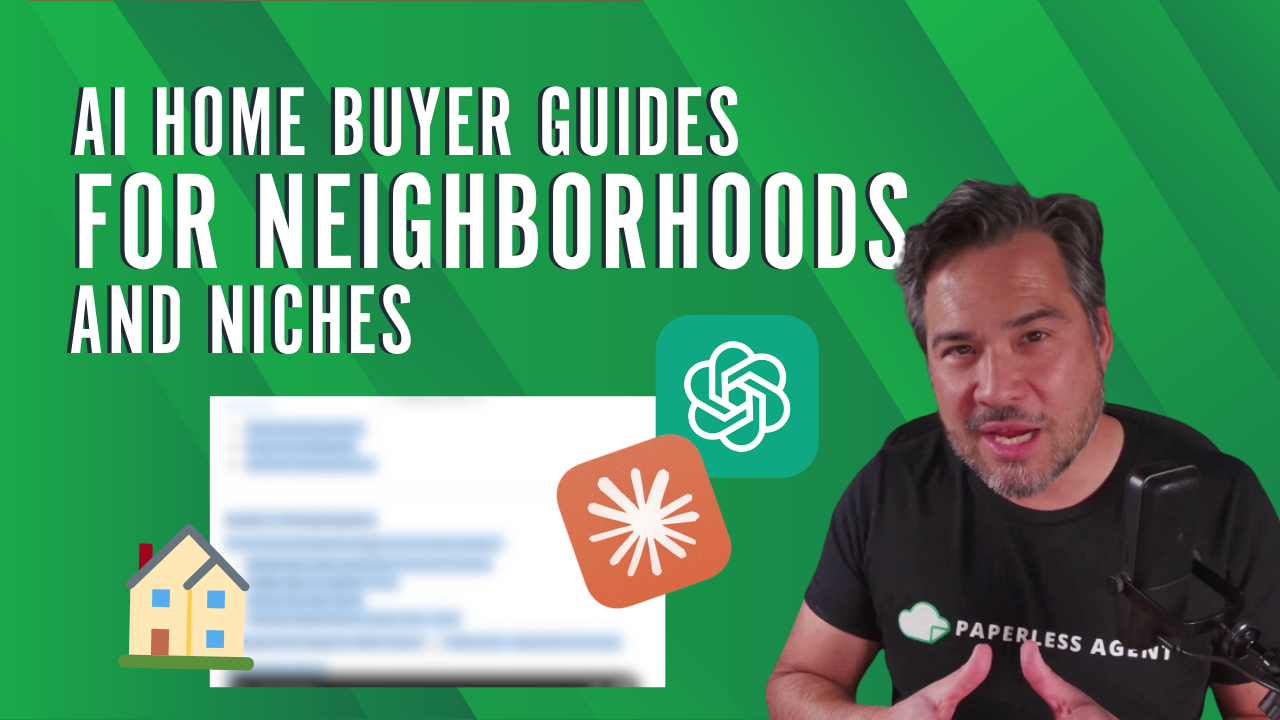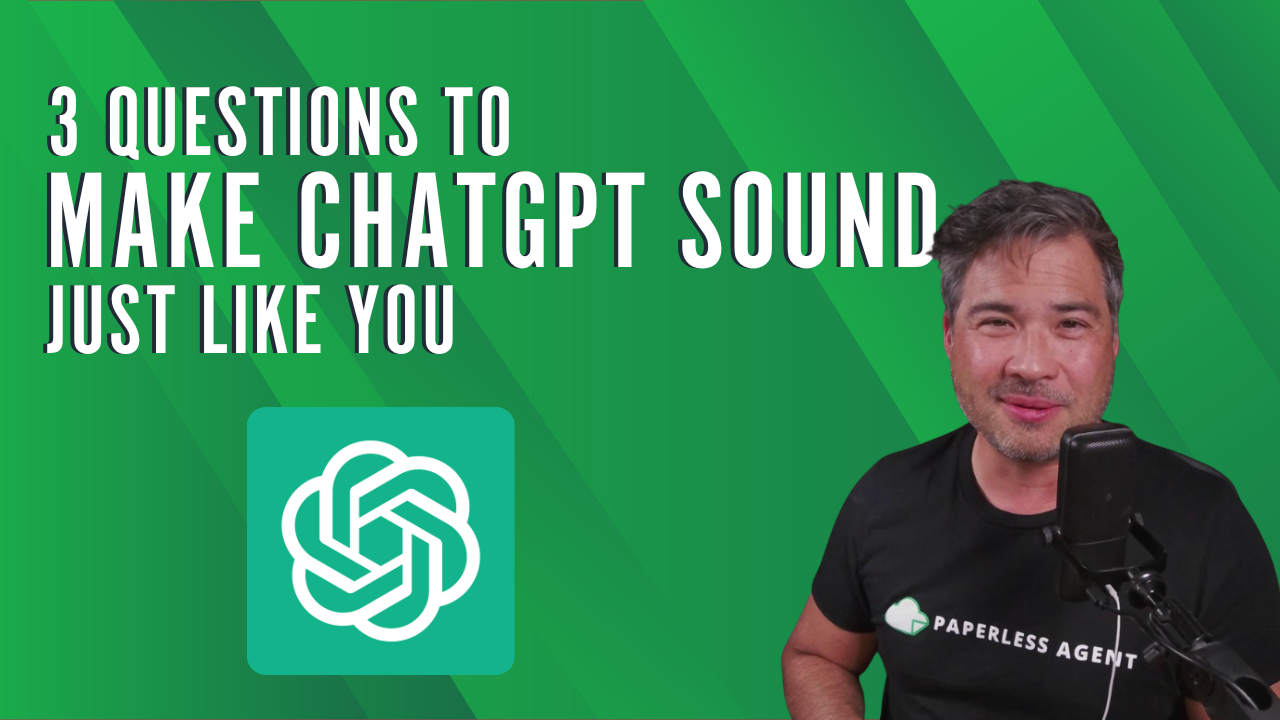AI for Real Estate Agents: A Practical Guide to Getting Started Today
The conversation around AI often focuses on what's coming next, but there's a more important question: what can artificial intelligence do for your real estate business right now?
The Current Capabilities of AI in Real Estate
AI has evolved into a practical tool that can transform multiple aspects of your daily workflow. Here are the core capabilities available today:
Content Creation and Writing
AI excels at generating written content that sounds natural and professional. Whether you need to respond to client emails, craft compelling listing descriptions, or research and write blog posts, AI can handle these tasks efficiently. The key is providing good data and clear instructions about your desired tone—you can make it sound exactly like you, or deliberately different if that serves your purpose better.
For listing descriptions, you can simply input your CMA data along with specifications like word count (150-175 words) and tone (familiar, storytelling format, avoiding overly persuasive language), and the AI will generate ready-to-use copy complete with an inviting headline.

Visual Content and Video
Beyond text, AI can modify images for virtual staging or create social media content. Video capabilities have expanded significantly, with AI avatars that can deliver content in your likeness—perfect for scaling your YouTube presence or creating personalized video messages.
Analysis and Insights
AI can process data to identify patterns, provide insights, and generate professional-looking reports. This goes beyond basic number-crunching; AI can format and present findings in polished PDFs that look like they came from a professional analyst.
Predictive Capabilities
Machine learning models can forecast outcomes based on historical data, helping with everything from home valuations to pricing strategies. This gives you data-driven confidence when advising clients.
Task Automation
Repetitive tasks like data entry, scheduling, and content publishing can be automated. For example, using custom GPTs connected to your CRM, you can extract information from business cards and automatically upload contact details to systems like HubSpot—no manual entry required.
Technical Tasks
AI can write code, create spreadsheet formulas, build apps and plugins, and even develop complete websites. You don't need to be a programmer to leverage these capabilities.
Strategic Advice
Perhaps most versatilely, AI can serve as an advisor on virtually any topic. Custom-trained tools can provide guidance that aligns with your specific business methodology. For instance, a "Listing Coach" trained on your firm's approach can generate scripts for sensitive conversations—like helping sellers understand why a price reduction from $650,000 to $595,000 makes strategic sense—using language and processes consistent with your established training.

Are You Too Late to the AI Party?
If you're worried you've missed the boat on AI, here's the reassuring truth: we're still in the very early stages. While AI has been publicly accessible for a couple of years, it remains in its infancy.
Consider the trajectory of previous technological transformations. Personal computing emerged in the 1970s, the internet became mainstream in the early 1990s, followed by smartphones and social media. Each of these technologies took considerable time to truly reshape consumer behavior. They evolved, adapted, and their impact grew gradually as both the technology and users matured together.
AI is following this same pattern. The tools are evolving rapidly, and their impact on how we work—and how consumers behave—is still unfolding. You're not late; you're actually well-positioned to implement these tools as they hit their stride.
How to Implement AI in Your Real Estate Practice
Getting started with AI requires a three-part approach:
1. Educate Yourself
Understanding what AI can and cannot do is foundational. You don't need to become a technical expert, but you should grasp the capabilities and limitations of these tools.
2. Start Using the Tools
Theory only gets you so far. Hands-on experience with platforms like ChatGPT, Claude, Gemini, or other AI tools is essential. Through actual use, you'll discover which applications work for your specific needs and which ones you can discard. This practical knowledge is invaluable and can't be gained from reading alone.
3. Get Help
You don't have to figure everything out on your own. Look for resources specifically designed for real estate professionals who want to implement AI in useful, practical, and profitable ways.

The Bottom Line
AI isn't just about saving time or automating tasks—though it certainly does both. The real opportunity lies in creating superior customer experiences. When you can respond faster, provide more detailed analysis, create better marketing materials, and offer more informed advice, your clients benefit directly.
The technology is here, it's accessible, and it's ready to work for you today. The question isn't whether AI will transform real estate—it's whether you'll be among those who harness it early to serve your clients better and build a more efficient, profitable practice.



Thanks, Claire. Your comments are very accurate. It may be overwhelming; however, we need to adapt to the changes, otherwise, we will fall behind.